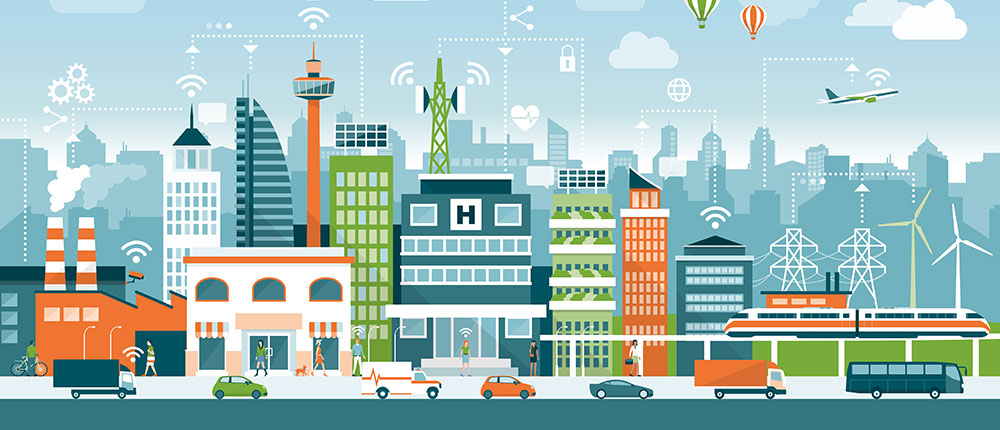Fostering a Sustainable Urban Future
With growing urbanisation, sustainable development will continue to increasingly depend on the successful management of urban growth and natural resources. This discussion paper suggests recommendations to incorporate and adapt sustainable solutions in cities in India.

Rapid urbanisation combined with the overall growth of the world’s population could add another 2.5 billion people to urban areas by 2050, with close to 90% of this increase happening in Asia and Africa (UNDESA, 2015). On one hand, it is estimated that almost 8.5 million Afghans, representing 24% of the total population, live in 34 provincial capitals and 120 district municipalities (Ministry of Urban Development, Afghanistan, 2015). On the other hand, India is expected to add 273 million people between 2019 and 2050 and remain the most populated country through the end of the century (UNDESA, 2019). Poor air and water quality, resource shortage, congested traffic systems, and high energy consumption are some of the major urban challenges induced by this increase in population density. With growing urbanisation, sustainable development will continue to increasingly depend on the successful management of urban growth and natural resources, especially in developing countries where the pace of urbanisation is projected to be the fastest. Collaborations and knowledge exchange between countries is also imperative for achieving sustainable urban development.
To address these urban challenges, the U.S. Department of State, The Energy and Resources Institute (TERI) and UN-Habitat India organized TechCamp Mumbai: Designing Our Urban Future in July 2019 in Mumbai, India. An initiative of the U.S. Consulate General, Mumbai, the U.S. Embassy Kabul, Afghanistan, and the Bureau of Educational and Cultural Affairs (ECA) – TechCamp Mumbai brought together approximately 40 Indians and Afghans active in urban planning and development to network and learn innovative tech tools to solve urban development challenges common to both countries. In a collaborative and interactive environment, Follow-on workshops were conducted in November 2019 by TERI and UN-Habitat Afghanistan in Mumbai and Kabul, respectively, with the overarching theme of Sustainable Solutions for Our Urban Future. The parallel workshops enabled the participants to further refine the specific urban challenges to be addressed and co-create solutions using innovative technology through thematic group discussions and active peer-learning. This Discussion Paper on "Fostering a Sustainable Urban Future" is a collation of the takeaways and recommendations from these participant-led Follow-on workshops.
Following are some recommendations provided by the participants of the Follow-on workshops to incorporate and adapt sustainable solutions in cities:
- Emphasis on capacity building and training of urban practitioners for sensitivity towards planning and management of environmental resources;
- Knowledge sharing through city-to-city networking to bridge gaps in implementation in local contexts;
- Improved accessibility to data for collection and analysis, and making processes simple, relevant, and transparent;
- Seamless coordination among government departments for an integrated response to urban planning and management;
- Establish monitoring and evaluation mechanisms of initiatives to improve accountability in implementation strategies;
- Innovative ways of community engagement at every stage of projects to promote ownership and maintenance of services.
